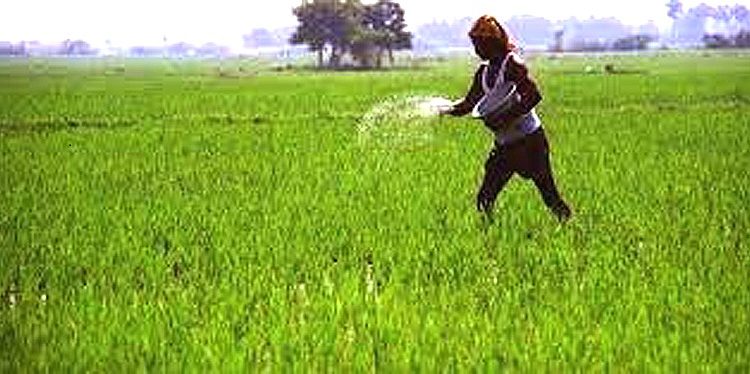New Delhi: Small-scale farmers, who are responsible for producing approximately one-third of the world’s food, have to withstand the worst of erratic climate change. Constituting around 85 per cent of all farms worldwide they rely heavily on rain-fed agriculture and often lack access to resources to adapt to changing conditions.
Considering that small-holder farmers also make up about half of the global population suffering from hunger, makes it is imperative to invest in farming techniques that are sustainable to climate change and are resilient.
To equip them with modern tools, India and Sweden came together on the eve of World Environment Day and unveiled a unique ‘Smart Farm’ to promote a sustainable food production system.
This ultra-modern farm, laced with innovative technology, would enable small-hold farmers to grow more food with significantly less water using solar energy. It would address the pressing challenges of water overuse for irrigation and reduce dependencies on fossil fuels to increase production.
The Smart Farm was launched under the umbrella of bilateral Energy and Environment MoUs signed by India and Sweden.
At the inauguration of the Smart Farm, Markus Lundgren, Charge d’ Affaires at the Embassy of Sweden and Head of Section for Trade, Economic, and Cultural Affairs, highlighted the growing challenges of water scarcity and asserted that as global temperature soars, the problem is expected to intensify further. He underlined: “Leveraging modern technologies is the only way to overcome the challenges that lie ahead.”
The one-of-a-kind Smart Farm facility is located at the National Institute of Solar Energy (NISE) premises and utilises Spowdi’s innovative technology, a green-tech engineering company that entered the Indian market in 2019. The technologies used are mobile and robust enough to work in tough conditions, high temperatures, and muddy water.
Called as the Spowdi Mobile Pro MKII, the technology has been tested by NISE, a specialised and autonomous institute operating under the Ministry of New and Renewable Energy (GoI). The institute is assessing its performance and its capability to drip-irrigate a 400 sq. metre land area with precise water volumes and optimal pressure. The system is powered by a mobile and compact 150-watt solar panel, highlighting the system’s efficient use of renewable energy.
Jai Prakash Singh, Deputy Director-General of NISE (MNRE), Government of India, said: “The solar-based micro-irrigation Farm, introduced in collaboration with NISE, showcases a futuristic micro-irrigation system that can help deal with the challenges of watering farmland in a more efficient way.”
The solar-based Micro-irrigation Farm will serve as a demo farm and a valuable learning resource for institutions, agricultural universities, and farmer communities interested in learning about innovative technologies for small-hold farming.
Addressing the gathering, Henrik Johansson, CEO of Spowdi, said: “Smart Farming methods and innovative technology can empower small-hold farmers in India, many of whom are women, to have an increased harvest, higher profitability, and better livelihoods.”
The solar-powered Spowdi technology, combined with drip irrigation, distributes water directly to the plant drop by drop, helping farmers save up to 80 per cent of water. It can help small-hold farmers enhance and diversify their yields on existing cultivated lands while significantly reducing water usage.
IANS






































